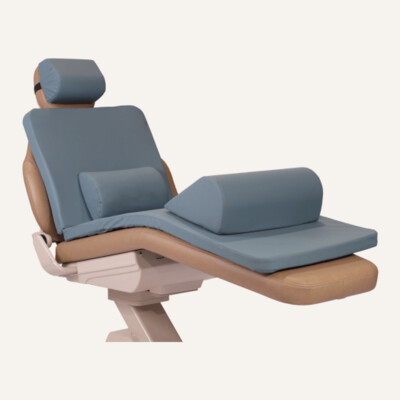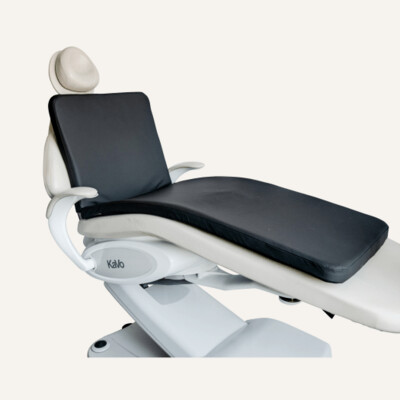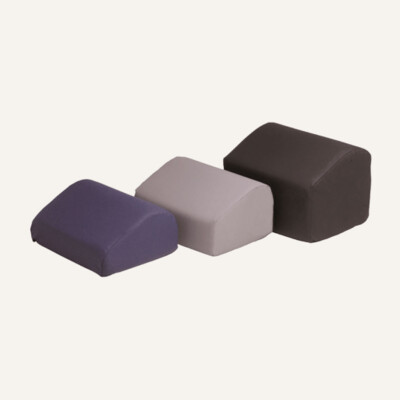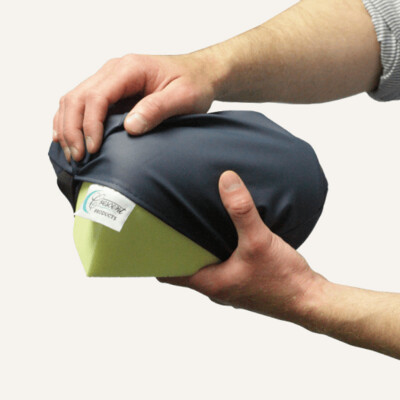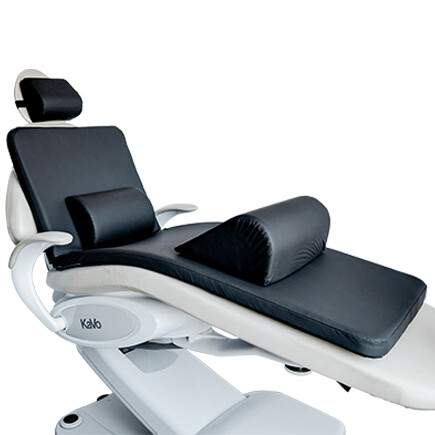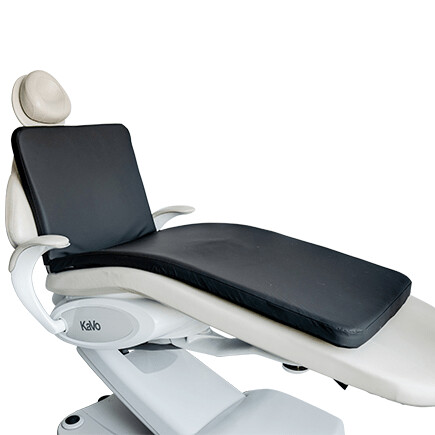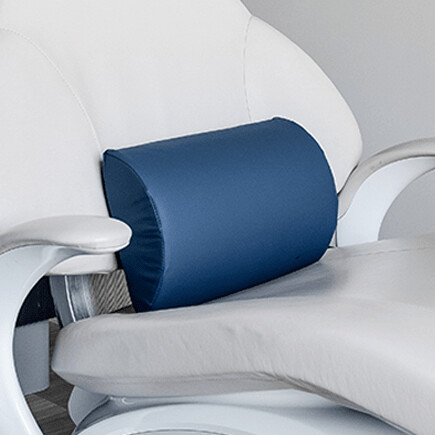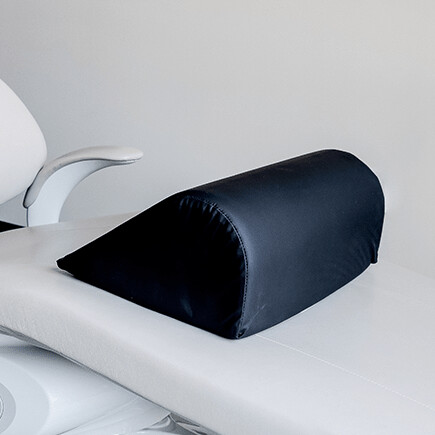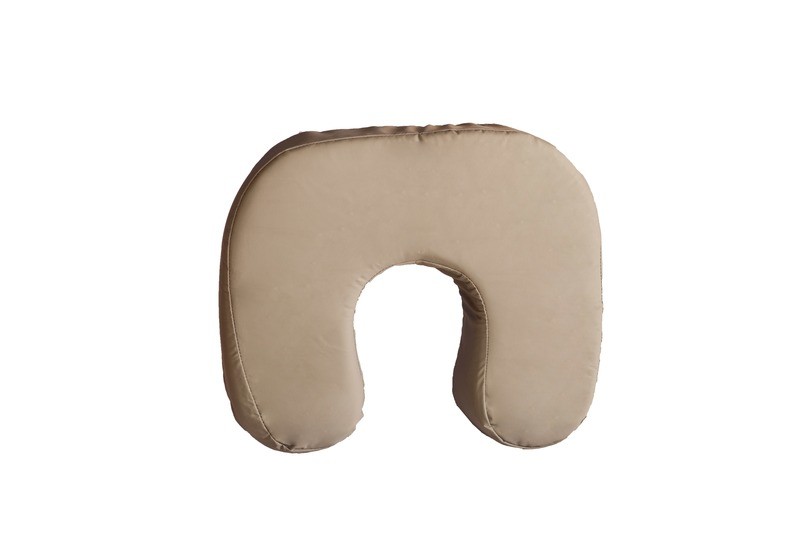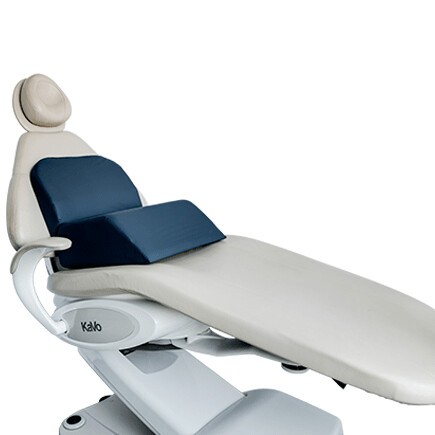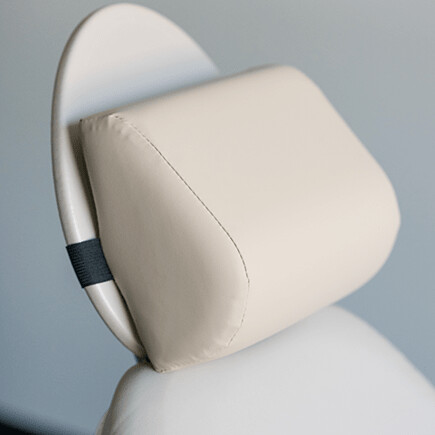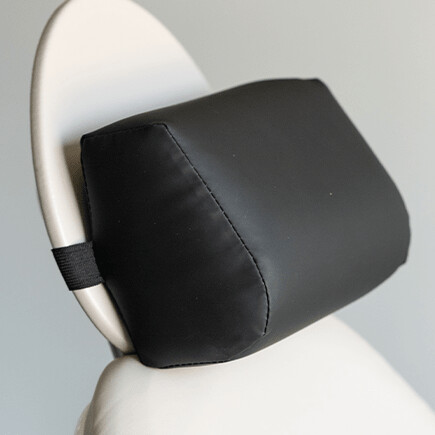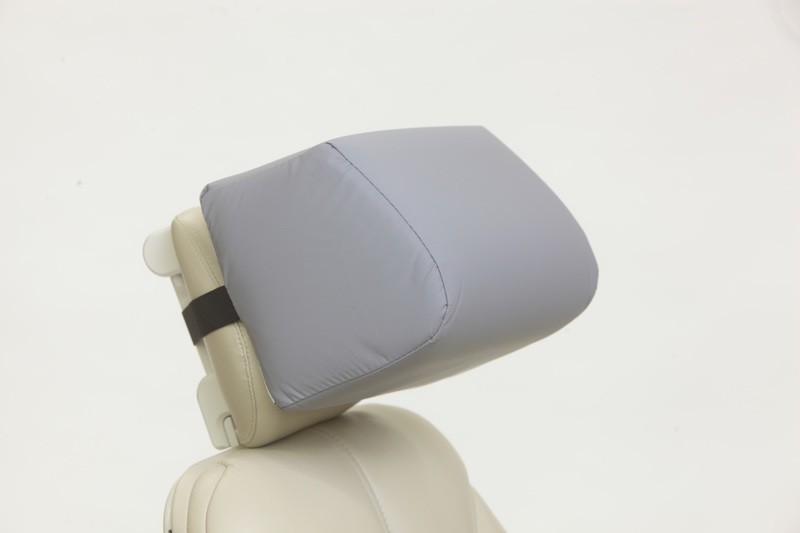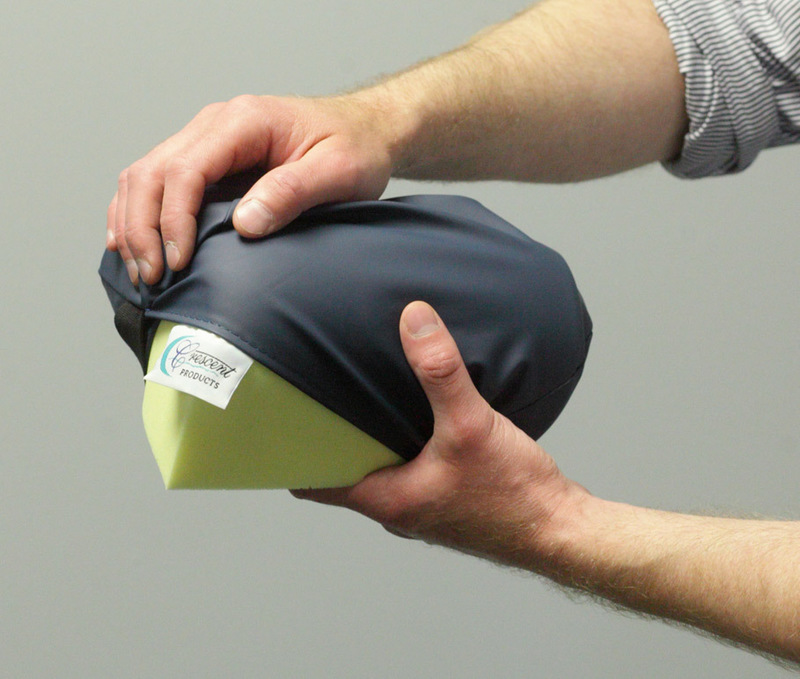The Best Stretches for Dentists to Relieve Pain and Improve Mobility

Dentistry is a physically demanding profession. Long hours spent leaning over patients, craning your neck, and holding static, awkward positions can take a serious toll on your body. If you’re experiencing chronic pain in your neck, shoulders, back, or wrists, you’re not alone, and you’re not helpless.
One of the most effective ways to counteract the physical strain of dentistry is a simple, low-cost solution: stretching.
Stretching Really Matters for Dental Professionals
Dentists, hygienists, and dental assistants often suffer from musculoskeletal disorders (MSDs), including:
- Neck and upper back pain
- Shoulder tension and rotator cuff issues
- Lower back discomfort
- Wrist and forearm strain
- Tight hips and hamstrings
This pain is annoying and can impact your focus, mood, and even shorten your career. In fact, studies show that as many as 70% of dental professionals experience chronic pain due to poor ergonomics and repetitive motion.
Stretching helps by:
- Increasing blood flow to tired muscles
- Improving flexibility and range of motion
- Releasing muscle tension and stiffness
- Reducing the risk of injury and joint problems
- Resetting posture after long periods of poor positioning
Think of stretching as routine maintenance for your body, the same way your patients need regular cleanings to prevent bigger issues down the road.
What are the Best Stretches for Dentists
Below are targeted stretches designed specifically to counteract the physical demands of dental work. You don’t need a gym or fancy equipment. Just a few minutes and some space to move.
The Neck Stretch
Targets: Neck, upper traps, shoulders
Great for: Dentists who frequently tilt their head or lean forward during procedures
How to do it:
- Sit or stand tall
- Slowly tilt your right ear toward your right shoulder
- Use your right hand to gently pull your head a little deeper into the stretch
- Hold for 20–30 seconds, then repeat on the other side
Keep your shoulders relaxed and don’t force the movement.
Shoulder Rolls and Shrugs
Targets: Shoulder joints, traps, neck
Great for: Reducing stiffness and tension from hunching
How to do it:
- Sit or stand upright
- Roll your shoulders forward 10 times
- Then roll them backward 10 times
- Add a few shoulder shrugs, lifting your shoulders toward your ears, then releasing them down
Perform this between patients to refresh circulation and posture.
Thoracic Extension Stretch (Wall Stretch)
Targets: Mid-back, spine, chest
Great for: Improving posture and opening up a tight upper back
How to do it:
- Stand facing a wall or counter
- Place your hands shoulder-width apart on the wall at chest height
- Step back and lower your torso, pushing your chest toward the floor
- Keep your arms straight and hips aligned
- Hold for 30 seconds
This can also be done using the back of a dental chair between appointments.
Wrist Flexor & Extensor Stretch
Targets: Forearms, wrists, hands
Great for: Reducing carpal tunnel risk and forearm fatigue
How to do it:
- Extend your right arm out in front, palm up
- Use your left hand to gently pull your fingers back toward you
- Hold for 15–20 seconds
- Then flip your hand (palm down) and pull fingers back again
- Repeat on both arms
Do these daily, especially after long procedures or repetitive instrument use.
Cat-Cow Stretch
Targets: Spine, neck, shoulders
Great for: Releasing tension from the entire spine
How to do it:
- Get on all fours (use a mat or towel if needed)
- Inhale as you drop your belly and lift your head (Cow)
- Exhale as you round your spine and tuck your chin (Cat)
- Move slowly with your breath for 8–10 repetitions
This is great for your morning or post-work routine to reset spinal alignment.
Hip Flexor Stretch
Targets: Hips, lower back
Great for: Dentists who sit for long periods during consults or charting
How to do it:
- Kneel on your right knee, left foot in front at 90 degrees
- Shift your weight forward until you feel a stretch in your right hip
- Hold for 30 seconds
- Switch sides
Engage your core to avoid over-arching the lower back.
Seated Hamstring Stretch
Targets: Hamstrings, lower back
Great for: Loosening tension after long sessions seated or bent forward
How to do it:
- Sit on the edge of a chair
- Extend one leg straight, heel on the floor
- Hinge forward from the hips while keeping your spine straight
- Hold for 20–30 seconds, then switch legs
Don’t round your back. Keep the stretch in the hamstrings, not the spine.
Make Stretching a Daily Habit
The key to long-term relief is consistency. Here’s how to work stretching into your busy day:
- Start your morning with 5 minutes of movement
- Add micro-breaks between patients—just 30–60 seconds per stretch
- Use your lunch break for a longer sequence
- End the day with a restorative routine
You don’t have to do all the stretches every day. Focus on the areas that feel tightest or most painful—and rotate throughout the week.
Support Your Body Before Pain Starts
While stretching helps relieve pain, preventing it is even better. At Crescent Products, we’re committed to helping dental professionals work smarter and feel better, starting with your equipment.
Our memory foam headrests, chair pads, and support accessories are designed to:
- Improve patient positioning (reducing your need to strain)
- Support better posture during long procedures
- Minimize repetitive stress injuries
- Create a more comfortable experience for both you and your patients
Explore Our Chair Accessories Now
Pain doesn’t have to be part of the job. With the right stretches and a few small changes to your daily routine, you can stay mobile, comfortable, and focused on what matters most: caring for your patients. Make stretching part of your practice. Your body and your future self will thank you.
